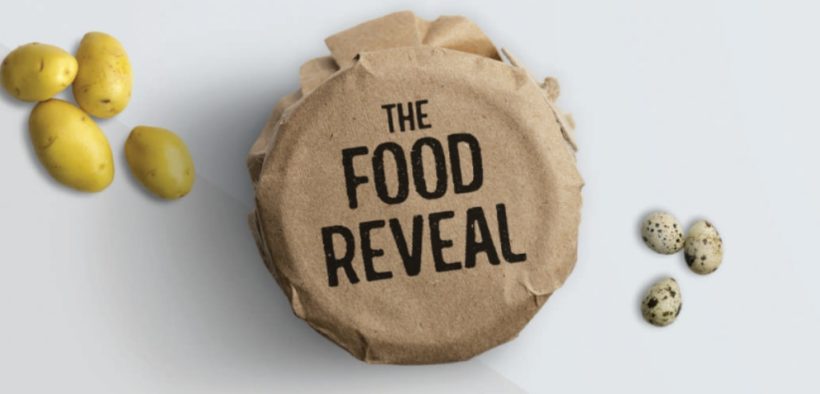The Food Reveal

Will organic produce put a dent in your wallet or your cancer risk? Here’s an eye-opener.
By Aatika H Jain
Eating healthier has become synonymous with organic food. We think if it is labeled organic, it ought to mean it is healthier. Organic food refers to a product that has been cultivated naturally without using any artificial fertilizers or pesticides; processed organic products are made from organic raw materials. Since the reports of the presence of pesticide residues in our fruits and vegetables came out, we have increasingly gravitated towards organic produce. In India, the market for organic produce has been growing at a CAGR of 25 percent and has been predicted to increase from the present ₹4,000 crores to ₹10,000-₹12,000 crores by 2020, as reported by Assocham-Ernst & Young.

Organic produce and cancer risk

A recent study published in the Journal of the American Medical Association (JAMA) recommends consuming organic food to lower your cancer risk. During the study, around 68, 946 French volunteers, pre
0dominantly adult women were followed from 2009 to 2016 for their dietary habits. There were around 25 percent fewer cancer cases among those who ate more organic produce; they were also 73 percent less prone to non-Hodgkin’s lymphoma and 21 percent less prone to postmenopausal breast cancer.
The study had several limitations, many of which have been acknowledged by the researchers. A basic questionnaire asked the participants the frequency of their organic food consumption, if they were smokers, their wages and if they exercised regularly. The participants were also questioned if they ever had cancer and were followed up five years later about developing cancer. Based on this self-reporting, researchers linked reduced cancer risk with greater organic food consumption.
Self-reporting is not an infallible method to accurately measure organic food consumption. Organic food intake is notoriously difficult to assess and its self-report is highly susceptible to confounding by positive health behaviors and socioeconomic factors, states three nutrition experts’ commentary attached to the study in JAMA. It is essential to account for confounding variables (or confounders i.e. external variables that could potentially alter the effects of both dependent and independent variables in a study and render the obtained results useless) in such studies.
Consuming organic produce is often linked with several other factors which also lead to better health and reduced overall cancer risk. That is, people who commonly prefer organic food most likely belong to higher income groups and make healthier life choices like having a more plant-based diet, eating less meat and processed food, avoiding alcohol and exercising regularly. Even in this study, people who reported eating organic produce more regularly tended to belong to this more health-conscious group. This increases the likelihood of residual confounding.

The participants of the study were largely wealthy French women and as such, its outcome cannot possibly be applied to the population at large. Belonging to the affluent class means they can afford to buy the more expensive organic options rather than conventional produce. It also means they can afford more visits to the doctors; thus helping detect health issues early on and getting timely and efficacious treatment. More money means they don’t have to stress about financial issues. It is common knowledge that stress over a long period of time adversely affects health. They probably reside in cleaner, less polluted areas and tend to have more time to exercise. The study reveals that people who ate more organic food were 25 percent less prone to cancer. The absolute cancer risk difference comes to around 0.5 percent, which is pretty small. A similar study from the UK, Million Women Study, revealed: “there was little or no decrease in the incidence of cancer associated with consumption of organic food, except possibly for non-Hodgkin lymphoma”. It also found marginally increased breast cancer risk.
The Dilemma
Should we switch over to organic, despite its high cost, to reduce our cancer risk by less than 1 percent? In India, any food sold as organic needs to adhere to the standards set by NPOP (National Programme for Organic Production) under APEDA (Agricultural and Processed Food Products Export Development Authority) or PGS-India (Participatory Guarantee System for India) run by the Ministry of Agriculture and Farmers’ Welfare.“One of the major challenges faced by consumers who buy organic products by paying so much premium is that whether they can trust the product to be authentic or not,” says Amit Bajaj of Ernst & Young. “Concerns over pesticide risks should not discourage intake of conventional fruits and vegetables, especially because organic produce is often expensive and inaccessible to many populations,” avers the commentary on JAMA. It is important to remember that a plant-based diet is good; so, include fruits, vegetables, pulses, whole grains in your diet; whether organic or non-organic, they are essential for good health. Try to have at least five portions of fruits and vegetables daily. They have phytonutrients that are believed to help us prevent cancer amongst other diseases.
“Current evidence indicates that the benefits of consuming conventionally grown produce are likely to outweigh the possible risks from pesticide exposure,” states the commentary. So, next time you have hunger pangs grab that apple while you take the stairs
















